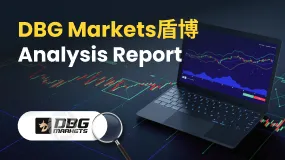Abstract:As the 2023 general election draw closer day by day, foreign investments in Nigeria have decreased by 81.46 percent ($6.91 billion), from $8.49 billion in the first quarter of 2019 to $1.57 billion in the same quarter of 2022, according to the National Bureau of Statistics, NBS

As the 2023 general election draw closer day by day, foreign investments in Nigeria have decreased by 81.46 percent ($6.91 billion), from $8.49 billion in the first quarter of 2019 to $1.57 billion in the same quarter of 2022, according to the National Bureau of Statistics, NBS
Foreign investors are decreasing their involvement in the Nigerian stock market as the country's general election in 2023 approaches and there is still a shortage of foreign currency, which is having an impact on companies' liquidity sources.
Other income streams for Nigerian businesses include trading of their shares on the local stock market. However, as inflation continues to have a significant impact on both of these, increasing from 18.6% in June to 19.64% in July, Nigerian businesses are also losing control over the latter.
Foreign investors frequently shift their investments from capital importation to credit, exports, and securities investments during election seasons because they are wary of the new government's policy intentions.
And in Nigeria, this has already started to happen. Between January and July 2022, foreign portfolio investors reduced their stock market investment by 37.24% from the N435 billion exchanged over the same time in 2021 to N273.16 billion.
According to figures from the Nigerian Exchange Limited (NGX) for July 2022, international investors are also withdrawing their money from the Nigerian equity market at a faster rate than they are putting it in, with inflows and outflows ending the month at N13.68 billion and N16 billion, respectively.
To further support the situation, it should be noted that domestic investors increased their trade value during the seven-month period under review by 1.70 percent, surpassing the N1.465 trillion recorded a year earlier. In addition, inflows have continued to outflows in July 2022, with both recording N36.97 billion and N34.53 billion respectively.
According to an estimate by Ripples Nigeria, the decline in foreign investment in the stock market in the first half of 2022 may have an impact on the 23% contribution from offshore investors last year.
Recall that Ripples Nigeria also stated that overall capital importation into Nigeria decreased -17.5% year over year from $1.9 billion in Q1 2021 to $1.6 billion in Q1 2022, a decrease of 28.1% on a quarterly basis.
With the general election only seven months away and policy uncertainty related to the new administration projected to last into Q1 2022, the second quarter of that year is predicted to drop similarly to H1 this year.
Consistent with our predictions, domestic investors made up the majority of those who participated in the equity market.
The breakdown of market participants in the period under review reveals domestic investors have primarily driven the market with 85.3 percent of total transactions, leaving foreign investors with 14.7 percent of total transactions in H1-2022, according to NGX data on Foreign and Domestic Investor's Participation in the Equities Market at the End of June 2022.
Foreign investors' interest in the equity market will also continue to be low given that the Central Bank of Nigeria (CBN) has tightened access to foreign exchange, making it difficult for foreigners to withdraw their money from the nation. Additionally, international airlines have threatened to stop operating flights into Nigeria due to a lack of foreign exchange.










